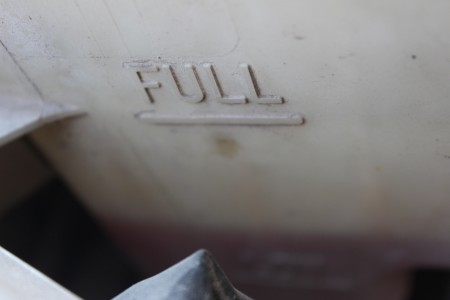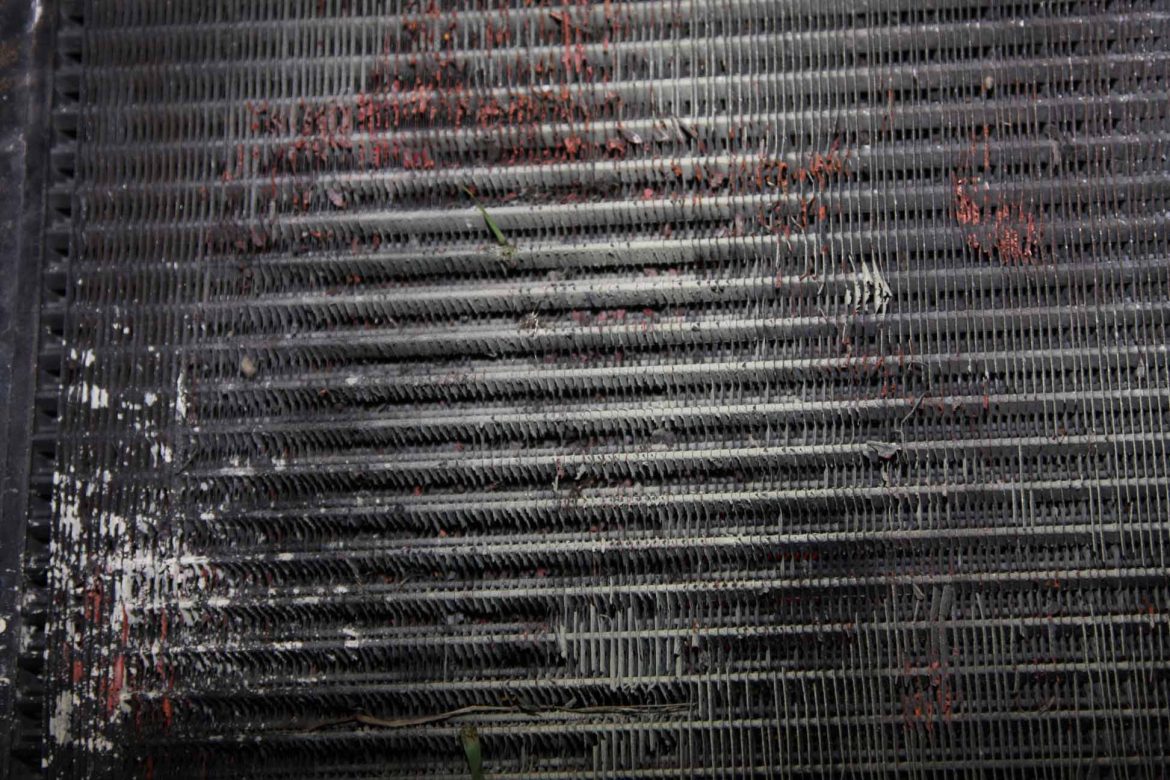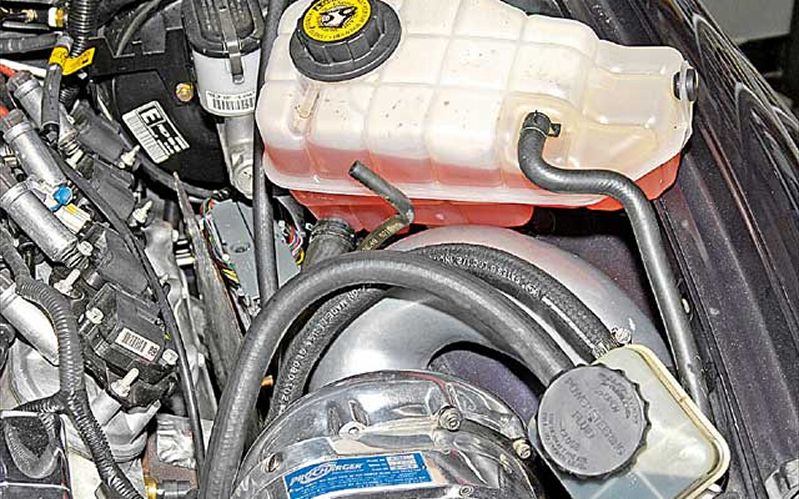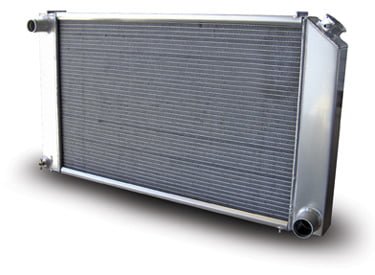When you pop the hood of your car you may see a bunch of things you recognize and understand or you may see a maze of wires and hoses and have no idea what you’re looking at. If you identify with the latter, don’t worry you’re in good company. Even the most seasoned of mechanics tend to specialize in a particular type of vehicle or even a particular year range and if you present them with a vehicle they’re not familiar with, they can be just as confused as the average car owner.
Every vehicle has the same basic purpose, to get you from point A to point B reliably and at least somewhat comfortably. The reality is, there is an endless number of different ways you can accomplish this task. This is even more evident today with the introduction of hybrid and electric vehicles that look completely different from any vehicles produced before them.
This is still true even when you consider smaller systems in your car like the power steering system. Your car can assist steering with a hydraulic system or an electric system and that system can get your tires to turn using a steering gear or a rack and pinion and the geometry and placement of this system can be in many different places depending on the design of your car and where the engine and transmission are located.
One of the things that every vehicle needs is a cooling system. The cooling system in your vehicle removes waste heat created by the combustion process to keep the metals in your engine at a safe temperature so that it can operate for hours at a time without any damage. Your cooling system is filled with special coolant that is a mixture of water and chemicals that keep it from freezing, help lubricate the system, prevent corrosion and aid in heat transfer. This coolant is pumped through the system using a water pump which is either electric or powered by your engine via a belt and pulley. Your vehicle will also have a thermostat and radiator which regulate the temperature of the coolant in your engine by sending more or less coolant through the radiator to be cooled based on your engine temperature.
How does the cooling system work?
One of the functions of your cooling system that you may not think much about is to maintain a constant pressure. Like most things, as your coolant heats up as you start driving, it will expand. If your system is completely full of coolant this expansion will cause a rapid rise in pressure. Your radiator cap is designed to keep that pressure under a certain point to keep things from leaking and your cooling hoses popping off or bursting at a high pressure. Once your system reaches operating pressure, the radiator cap will allow coolant to flow past it into the coolant reservoir maintaining the proper pressure. Then once you’ve stopped and your engine starts to cool, the opposite happens. As the temperature goes down and your coolant contracts, it creates a vacuum that can draw coolant back in through the radiator cap making sure your cooling system always stays full of coolant and has no air bubbles.
What is the coolant reservoir for?
 Your coolant reservoir serves a very important role in your cooling system as it keeps your system full and free of air bubbles so it can operate at its full potential. Your coolant reservoir is also the first place you’ll be able to notice a leak. If coolant is leaking from your system, you’ll notice that even when your car is warm, the level won’t get quite as high in the reservoir. If you notice this happening in your car, make sure to keep your coolant reservoir topped off to avoid air being introduced into your cooling system. Also, take some time to identify your leak location and fix it quickly so you can get back to operating your vehicle safely. If you notice you have a slow head gasket leak, you can use BlueDevil Pour-N-Go to seal the leak and solve your cooling system problems quickly and easily.
Your coolant reservoir serves a very important role in your cooling system as it keeps your system full and free of air bubbles so it can operate at its full potential. Your coolant reservoir is also the first place you’ll be able to notice a leak. If coolant is leaking from your system, you’ll notice that even when your car is warm, the level won’t get quite as high in the reservoir. If you notice this happening in your car, make sure to keep your coolant reservoir topped off to avoid air being introduced into your cooling system. Also, take some time to identify your leak location and fix it quickly so you can get back to operating your vehicle safely. If you notice you have a slow head gasket leak, you can use BlueDevil Pour-N-Go to seal the leak and solve your cooling system problems quickly and easily.
BlueDevil Products can be found on Amazon.com or at AutoZone, Advance Auto Parts, O’Reilly Auto Parts, NAPA, and other major auto parts retailers.
33 responses to "What is Your Coolant Reservoir For?"
33 Comments
Leave a Reply
Related Articles




Your directions say not to add in coolant reservoir but that’s the only option in a duramax the cap is on the reservoir
Greg-
If your vehicle only has a reservoir/overflow rather than a radiator cap, instead of pouring BlueDevil through the reservoir/overflow, with the car off and engine cold you should disconnect the top radiator hose and add the product there; do not pour it into the reservoir. It may be added into the hose or the opening on the radiator. Once BlueDevil has been added, reconnect the hose and start the idle from that point.
Thank you!
-BDP
I can’t fist a funnel into the radiator opening of my Dodge Journey 3.6L nor an I remove the thermostat cause it on the housing that connects to the hose. So the reservoir is my only option
Marcus-
Unfortunately, adding the product in through the reservoir is not an option. The product must be added directly into the system. If your vehicle only has a reservoir/overflow rather than a radiator cap, instead of pouring BlueDevil through the reservoir/overflow, with the car off and engine cold you should disconnect the top radiator hose and add the product there; do not pour it into the reservoir. It may be added into the hose or the opening on the radiator. Once BlueDevil has been added, reconnect the hose and start the idle from that point.
Thank you!
-BDP
I tried that with water first to see if it would flow into the radiator. The water filled in the hose and it was only 8oz. What should I do?
Marcus-
Please contact our technical support line at 888-863-0426 for assistance.
Thank you!
-BDP
How many days get fix after putting in radiator
Hong-
Please contact our technical support line at 888-863-0426 so that we can get a little better understanding of the vehicle’s condition and be able to make any appropriate recommendations.
Thank you!
-BDP
What happens if someone put the blue devil product in the resevior?
Mary-
If your vehicle only has a reservoir/overflow rather than a radiator cap, instead of pouring BlueDevil through the reservoir/overflow, with the car off and engine cold you should disconnect the top radiator hose and add the product there; do not pour it into the reservoir. It may be added into the hose or the opening on the radiator. The speed of the pour will not matter. Once BlueDevil has been added, reconnect the hose and start the idle from that point.
It is very important that the product is added to the radiator when the engine is cold. If it is added in through the reservoir, it would not pull into the radiator right away. In fact, it may not pull until the engine is hot, which would essentially be adding the product to a hot engine. You would be limiting the effectiveness of the product and also could cause harm to the system.
Thank you!
-BDP
In a 2017 durango do I just pour directly into the radiator or do I pour into the hose
Melvin-
If you are asking about the BlueDevil Head Gasket Sealer, the product needs to be added directly into your radiator. You are not adding it in through the reservoir/overflow tank. Feel free to contact our technical support line at 888-863-0426 with any other questions.
Thank you!
-BDP
Should the reservoir tank be empty when adding Blue Devil through top radiator hose(no rad cap present, only reservoir tank), or can I leave in whatever amount of coolant is presently in reservoir? 2012 VW Beetle turbo
Sean-
Thank you for asking about your Volkswagen Beetle. The reservoir tank can remain full. You would want to make sure there is enough room in the radiator prior to adding the product. The radiator should be just about full, leaving just enough room for the recommended amount of the product. Feel free to contact our technical support line at 888-863-0426 with any other questions.
Thank you!
-BDP
Good Morning,
I have a 2013 Dodge Durango, I’m losing coolant but have no leak and no white smoke coming out the back either. I was told the symptoms are that of a head gasket leak. So I just picked up BlueDevil and I’m trying to understand how to put this into the radiator. I found the cap to the radiator its tucked up under a hood flap with a hose I’m assuming leads to radiator. If I cant see down the radiator how will I know if its full enough when pouring let alone know if I have anything in my radiator? Other than it overheated yesterday and had to turn on heater to cool down. Hoping I can do this on my own, any help is greatly appreciated.
Thank you,
Sarah
Sarah-
Thank you for asking about your Dodge Durango. If your vehicle only has a reservoir/overflow rather than a radiator cap, instead of pouring BlueDevil through the reservoir/overflow, with the car off and engine cold you should disconnect the top radiator hose and add the product there; do not pour it into the reservoir. It may be added into the hose or the opening on the radiator. Once BlueDevil has been added, reconnect the hose and start the idle from that point.
What are the symptoms the vehicle is having? Please contact our technical support line at 888-863-0426 so that we can get a little better understanding of the vehicle’s condition and be able to make any appropriate recommendations.
Thank you!
-BDP
I think it is so funny on how many videos I’ve seen with people pouring the Blue Devil Head Gasket Seal into the Reserve tank when no radiator cap is present. When the directions on the bottle Clearly say don’t do that. Or they say how/or where do I pour Blue Devil when their is no place but the reserve to pour. I’m no mechanic by any means as I was a little confused but as in reading the directions common sense told me to pull the top radiator hose off and pour your product in that spot. My girlfriend even figured that one out and she’s mildly retarded just joking. But no I just wanted to say how cool I think it is the person leaving the response for the comments asking about where to pour the Blue Devil product is very patient and professional for the simple fact that he does not flip out awesome job you guys from Blue Devil
What would happen if I poured the blue devil in the radiator before its cool?
Almeda-
The BlueDevil Head Gasket Sealer must be added into the radiator when the engine is cold. The product works by first looking for a temperature differential (leak point), and then reacting with heat to form a chemical weld. If you add the product to a hot engine, it would start to react prematurely and could cause adverse results in the cooling system.
Thank you!
-BDP
I put blue devil in resivor now wheel hard to turn what could I do now 😊
Michael-
Are you saying you added BlueDevil Head Gasket Sealer into your coolant reservoir? Even though the product should not be added into the reservoir, it would not have any effect on your ability to turn the steering wheel. Please contact our technical support line at 888-863-0426 so that we can get a little better understanding of the vehicle’s condition and be able to make any appropriate recommendations.
Thank you!
-BDP
I have visual coolant coming from head gasket will a sealant work
Craig-
How quickly are you losing coolant? As long as the leak isn’t more than a seep or lightly dripping, the product would be able to seal the leak you’ve described. Feel free to contact our technical support line at 888-863-0426 with any other questions.
Thank you!
-BDP
I accidentally put my bd in the reservoir … should I buy another bottle and put it directly into the hose? Working on a 07 ford edge
Annie-
Did it seem like the product has worked or are you still having the same symptoms? You may not require a 2nd treatment. Please contact us at 888.863.0426 so that we may discuss the vehicle with you.
I accidentally put coolant stop leak in my coolant reservoir, I do not know anything about vehicles. My car is a 2015 Audi A3. My water pump is cracked and leaking coolant fast. I thought this is where you put this product not my heater is blowing cold air. Do I need to take it into a mechanic?
Emerald-
As per the directions, it is very important that the product is added directly into the radiator when the engine is cold, and not in through the reservoir/overflow tank. Adding the product in through the reservoir would essentially be like adding the product to a hot engine. We’d recommend flushing the cooling system using a 50/50 mix of white distilled vinegar and water. Please contact our technical support line at 888-863-0426 for further assistance.
Thank you!
-BDP
On a Volvo S40 T5, there is no radiators cap. The upper radiator hose connects midway down on the driver side of the radiator. It requires major surgery to get where the upper hose connects . by going to the upper hose , it will drain half the coolant in the radiator, anyway. by running and pouring coolant may be pumped out.
Can I, while the engine is stone cold, 1) drain half the radiator. 2) pour Pour & Go into a fill hose, from the plastic tank, but not through the plastic tank. 3) Refill coolant. 4) Run engine for 50 minutes 5) let cool.
Thanks
Will
Will-
Yes, with the vehicle off and engine cold, you would want to add the product through the hose that is going directly into the radiator. The hose that lead to the top of the radiator would be best.
Thank you!
-BDP
I was only able to put the blue devil in my over flow tank because I’m not able to disconnect my hose in my 2018 Chrysler Pacifica. Will my engine be ok?
Sarah-
Thank you for asking about your Chrsyler Pacifica. Did the engine maintain idle for the full 50 minutes without overheating? What are the symtomps the vehicle was having? Please contact our technical support line at 888-863-0426 so that we can get a little better understanding of the vehicle’s condition and be able to make any appropriate recommendations.
Thank you!
-BDP
Can you add Blue Devil Radiator flush and degreaser directly in to the over flow tank or does it need to go into the upper radiator hose if you don’t have a radiator cap?
Monty-
Yes, you may add the BlueDevil Radiator Flush & Oil Degreaser directly into your reservoir/overflow tank.
Thank you!
-BDP